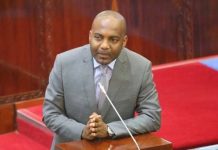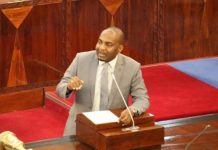AfricaPress-Tanzania: HOME Affairs Deputy Minister, Mr Hamad Masauni, has expressed satisfaction at the regional and national boards with their prisoners’ parole programme, asking them to continue with it.
Speaking here during inauguration of the National Parole Board, the Deputy Minister, said civilisation level in any country globally is measured by how the country handles ‘rehabilitation’ of prisoners in their prisons.
“I am satisfied with the level of performance of the regional and national boards of parole in the country that is providing prisoners with an opportunity to join community members with ease on parole basis,” he said.
Mr Masauni noted that it was important that the board improves its understanding of parole regulations and programme, because they have a benefit to the nation.
He said the programme has occasioned some discipline to pardoned prisoners, who exercise discipline and cooperation once reinstated into community, a behaviour that contributes in the development of the whole nation.
On his part, Chairman of the National Parole Board, Mr Augustine Mrema, said he would ensure the board performs its duties professionally and with a lot of efficiency, adding that cooperation and coordination among its members would be his next task.
However, he expressed gratitude to President John Magufuli for appointing him to head the board as a Chairman, saying he would not let him down in his duties.
“This demonstrates the trust bestowed on me by President Magufuli to carry out national duties, and I promise, I will not let him down,” he added.
Earlier, Prisons Commissioner General Suleiman Mzee said since its establishment, the Parole Board has managed to think of pardoning 6,237 prisoners on parole basis, whereas 5,535 have been released.
“The National Parole Board has managed to convene 41 sessions to discuss prisoners on possible parole, since its establishment,” said General Mzee, who also doubles as the National Parole Board Secretary.
Elaborating, he said parole was important strategy on rehabilitating prisoners’ behaviour while serving the public, saying since its establishment in 1994.
He added: “The parole has tremendously helped to decongest prisons, where prisoners with good behavour are released.”




